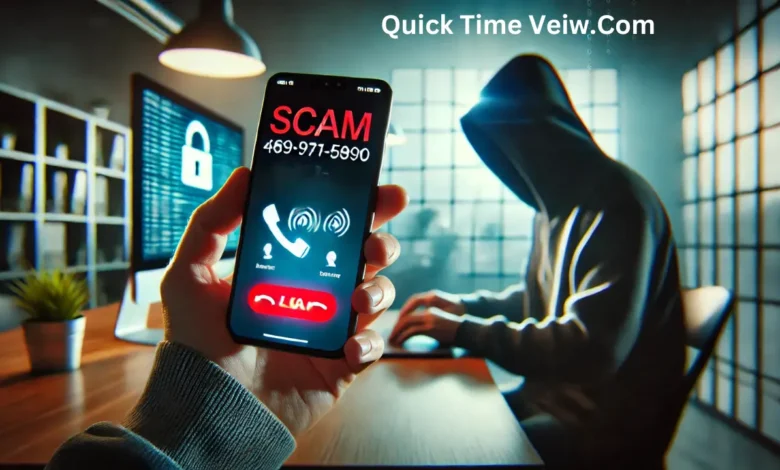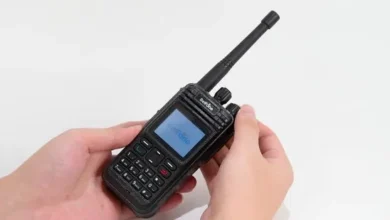469-971-5890: Unmasking the Dangerous Scam Calls & How to Stay Safe

In today digital world, phone scams have become a widespread concern, with many individuals receiving calls from unknown or suspicious numbers. One such number that has raised eyebrows is “469-971-5890“. Reports suggest that this number has been associated with scam activities, robocalls, and fraudulent schemes. Understanding the risks and learning how to handle such calls can help protect personal information and avoid potential scams.
The Origin of 469-971-5890
The 469 area code covers a large portion of the Dallas-Fort Worth metropolitan area in Texas. However, the presence of a local area code does not necessarily mean that the call is legitimate. Scammers often use spoofing techniques to make it appear as though the call is coming from a local number when, in reality, it may be originating from another country or an untraceable source.
Why Are You Receiving Calls from 469-971-5890?
There are several reasons why you might be receiving repeated or unsolicited calls from 469-971-5890:
- Scam Attempts: Scammers use various tactics to trick individuals into providing personal or financial information.
- Robocalls: Automated calls promoting fake offers, debt relief scams, or fraudulent investment opportunities.
- Phishing Schemes: The caller may try to extract sensitive details like credit card numbers or social security information.
- Telemarketing and Spam Calls: Some telemarketers use aggressive tactics to push their products or services.
Common Tactics Used by Scam Callers
Scammers employing numbers like 469-971-5890 often use these common techniques to manipulate their targets:
Urgent or Threatening Language
They may claim that your bank account has been compromised, you owe back taxes, or there is an arrest warrant in your name, urging you to take immediate action.
Automated Messages (Robocalls)
Many scam calls are pre-recorded messages warning of dire consequences if you do not respond.
Fake Technical Support Calls
Scammers may claim to be from Microsoft, Apple, or another well-known company, stating that your computer is infected and requires immediate remote access.
Prize or Lottery Scams
You may be told that you have won a prize but need to pay a fee or provide personal details to claim it.
How to Identify a Scam Call from 469-971-5890
To protect yourself from fraudulent calls, be on the lookout for these red flags:
- Unknown Caller ID: If the number is unfamiliar, let it go to voicemail.
- Requests for Personal Information: Banks and legitimate companies will never ask for sensitive details over the phone.
- High-Pressure Tactics: Scammers create a sense of urgency to prevent you from thinking critically.
- Poor Audio Quality or Pre-Recorded Messages: Many scam calls use low-quality robocalls to reach mass audiences.
What to Do If You Receive a Call from 469-971-5890
If you receive a call from 469-971-5890, follow these steps to protect yourself:
Do Not Answer
Ignoring unknown calls is the best way to avoid scammers.
Do Not Share Personal Information
Never provide sensitive details over the phone, especially if the caller asks for passwords, banking information, or social security numbers.
Hang Up Immediately
If you accidentally pick up the call, do not engage with the scammer. Hang up immediately to prevent falling into their trap.
Block the Number
Most smartphones have built-in features to block numbers. Blocking 469-971-5890 can prevent future scam attempts.
Report the Call
Notify your phone carrier, the Federal Trade Commission (FTC), or other relevant authorities about the scam call.
How to Protect Yourself from Future Scam Calls
To reduce the likelihood of receiving fraudulent calls, take the following precautions:
- Register on the National Do Not Call List: This can help reduce unwanted marketing calls.
- Use a Call Blocking App: Apps like Truecaller, Hiya, or Nomorobo can identify and block spam calls.
- Be Cautious with Personal Information: Avoid sharing your phone number online unless necessary.
- Enable Phone Security Features: Many phone providers offer spam call protection services.
Why Are Scam Calls Increasing?
Scam calls, including those from 469-971-5890, have been on the rise due to:
- Advancements in Spoofing Technology: Scammers can disguise their real numbers easily.
- Availability of Personal Data on the Dark Web: Data breaches have exposed millions of phone numbers.
- High Success Rate: Unfortunately, many individuals fall for scam tactics, making it a profitable venture for scammers.
What Authorities Are Doing to Combat Scam Calls
Government agencies and telecom providers are taking steps to combat fraudulent calls:
- Caller ID Authentication (STIR/SHAKEN Protocol): Ensures that calls from legitimate numbers are verified.
- Crackdowns on Robocalls: The FTC and FCC have been imposing fines on fraudulent robocall operations.
- Public Awareness Campaigns: Educating people about scam calls helps reduce their effectiveness.
Frequently Asked Questions (FAQs)
1. Is 469-971-5890 a scam number? Many reports suggest that calls from 469-971-5890 may be linked to scam attempts, robocalls, and phishing schemes. It is advisable to avoid answering calls from this number.
2. What should I do if I get a call from 469-971-5890? If you receive a call from 469-971-5890, do not answer, do not share personal information, and block the number immediately.
3. How can I stop receiving scam calls? You can reduce scam calls by registering your number on the National Do Not Call List, using call-blocking apps, and being cautious with where you share your phone number.
4. Why do scammers use local area codes like 469? Scammers use local area codes to make their calls appear legitimate and increase the chances of their targets answering the phone.
5. How do I report a scam call from 469-971-5890? You can report scam calls to the Federal Trade Commission (FTC), Federal Communications Commission (FCC), or your phone service provider to help combat fraudulent activities.
Conclusion
Staying vigilant against scam calls like those from 469-971-5890 is crucial in protecting yourself from fraud. By recognizing red flags, taking proactive measures such as blocking and reporting suspicious numbers, and using call-blocking technologies, you can significantly reduce the risk of falling victim to phone scams. Awareness and caution are key in combating this growing issue, ensuring that personal and financial information remains secure.
Read More: London O2 2019 MS Mud Pajanimals – Fact or Fiction? Exploring Pajanimals’ Musical Impact




